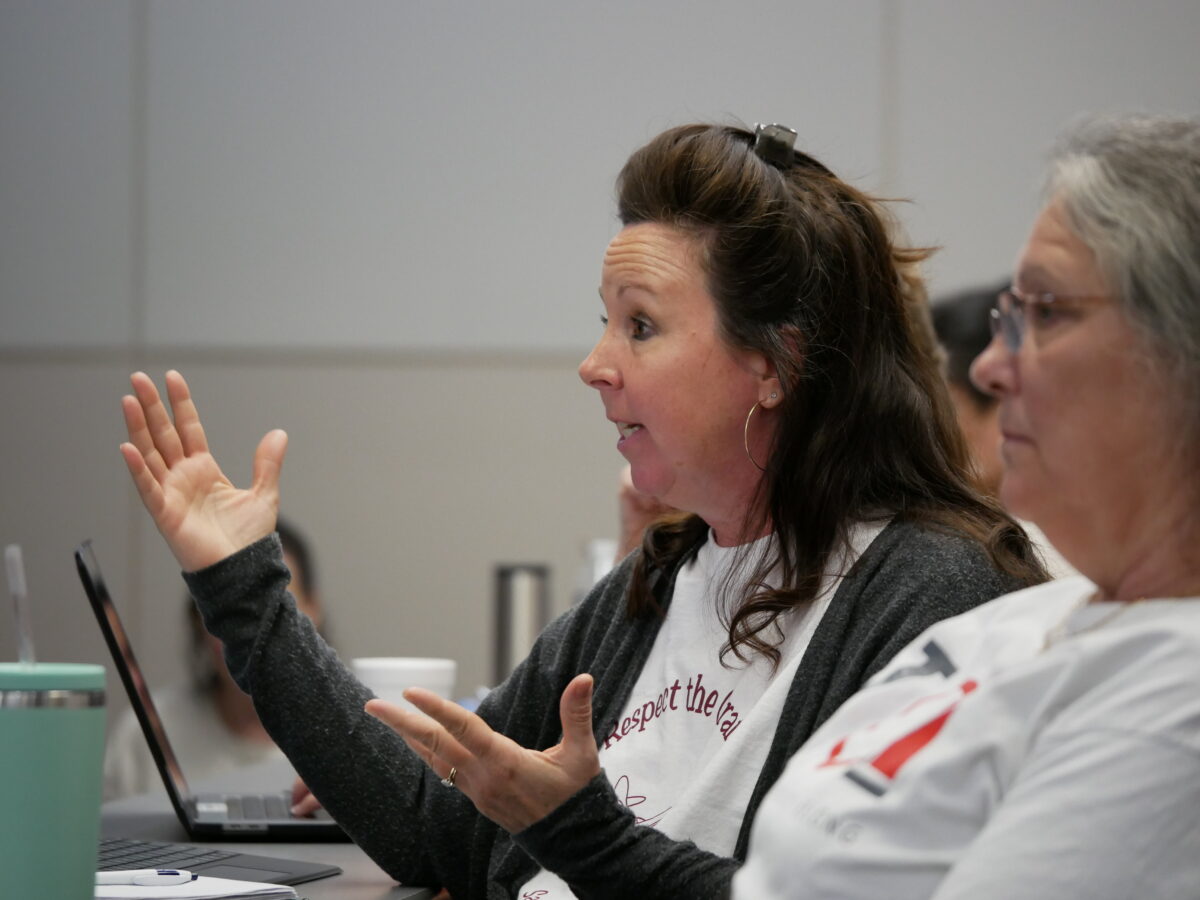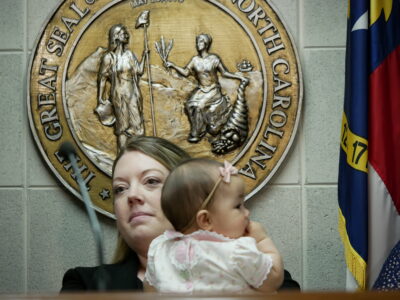

|
|
As legislators from across the state were meeting in Raleigh for one week in March, community college faculty from across the state were meeting three hours away, in Morganton.
The instructors and department chairs were discussing early care and education — a sector that some legislators have acknowledged needs support.
Yet the state House budget plan, released last week, lacked the stabilization funds to support child care teachers and programs that have shown up in other proposals this session – $300 million in a bipartisan bill and $500 million in Gov. Roy Cooper’s budget.
Meanwhile, the profession supporting that early care system lacks sufficient wages, education standards, and respect, community college faculty said at their convening at Western Piedmont Community College.
Child care workers in North Carolina received a median hourly wage of $11.23 in 2021. Many providers are reporting struggles to find qualified staff to meet communities’ demands, leading to legislative efforts to relax standards those staff members must meet. And many community college administrators have said they feel conflicted about offering a program that sends its graduates into a low-wage field.
The early childhood faculty at community colleges are at the intersection of all of these dynamics. They prepare early childhood teachers, offering them multiple pathways to receive credentials, certificates, and degrees. Many of the faculty members at the meeting in March had spent decades shaping the profession they see as vital to children’s development and communities’ wellbeing — and also in trouble.
‘It needs to be respected’
“We’re putting our children in jeopardy,” said Brenda Blackburn, dean of business and service careers at Blue Ridge Community College.
There are not enough qualified early childhood professionals in the workforce to meet families’ needs, she said.
“One reason is because of the pay. Obviously, that’s huge,” Blackburn said. “But I don’t think the society as a whole views it and respects it in the way it needs to be respected.”
EdNC asked faculty at the gathering what they see as the biggest challenge facing the profession, and what policymakers should know about the profession.
Low wages were a unifying thread.
“They’re working two and three jobs to support their own family, and then they get to the point where that’s not working, and then they can go into fast food or another profession or job and make twice what they make in the classroom,” said Christy Hopkins, an early childhood instructor and practicum coordinator at Stanly Community College.
“Teachers feel overworked, unappreciated, and that is why a lot of them are leaving the field,” said Tonya Silas, early childhood program head at South Piedmont Community College.
‘It’s like we’ve lost that focus’
Low education standards was the second most common response.
Legislation passed last year created an option for individuals to complete a test, which will be launched this month, to be eligible to work in child care. Before that, one community college course was the minimum requirement, with other education levels depending on programs’ license rating.
“The lack of education is key,” said Cyndie Osborne, head of the early childhood department at Stanly Community College. “We are not considered a profession.”
Osborne pointed to training hours required for nail technicians (300) and hair dressers (1,200). “We now have just a test option,” she said.
Though one community college course was not sufficient, faculty said, the course often served as an entry point for students to form relationships at colleges and take other courses.
“Now they’re going to miss that opportunity to be able to see that education does make a difference,” said Stephanie Lackey, early childhood education program coordinator at Forsyth Technical Community College, who has been in the community college system for 21 years. She has seen colleges make strides to provide options for those interested in early childhood education, such as establishing articulation agreements with universities for people who want to earn bachelor’s degrees.
“We felt like we were on a journey to be able to provide strong pathways for our students and give them options in the field of early care and education,” Lackey said. “And now, it’s like we’ve lost that focus.”
Multiple faculty members mentioned new community college programs to support the K-12 teacher workforce. Many early childhood programs are changing their names to “education” to offer courses to individuals interested in K-12 teaching. Some colleges are also planning to serve as educator preparation programs for teachers who have bachelor’s degrees in other fields, while they work in school districts.
“I would encourage policymakers to incentivize the way that we are with teachers in older grades, trying to get them back into the classrooms with these other programs — we need to do the same thing with early childhood,” said Nikki Leonard, education department head at Wake Tech Community College. “We need to have that recognition.”
‘Put us at the forefront’
Rondell Bennett, early childhood department head at Fayetteville Tech Community College, said people would pursue higher education if there was a pay structure to support it.
Though parents and businesses need child care, the workforce does not have support, she said.
“For our profession, we’re in high demand,” Bennett said. “But the people who would do the jobs are not wanting to break down your door to get (more education) because there’s no money in the high-demand profession.”
“I have center owners tell me, ‘I could bring in 20 kids today, but I don’t have workers,'” said Phoebe Harris, education program director at Robeson Community College.
When asked what policymakers should know about the profession, Kristen Monteith at Central Piedmont Community College put it simply:
“Not to take us for granted,” Monteith said. “Don’t just tack us on to other stuff. Don’t make us an afterthought. Put us at the forefront.”





